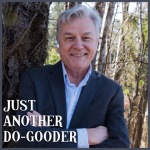The AASW, in an email broadcast is claiming that this blog post contains “false information” and “alternative facts”. I find this deeply hurtful. I am strongly committed to our code of ethics, social justice and participatory democracy. I will let you be the judge of how just and accurate my views are.
The AASW Board is seeking to change the constitution by putting two resolutions to the AGM. The first resolution bundles up a number of changes. Key elements of the bundle include banishing all reference to the Australian College of Social Work from the constitution and moving it to the bylaws, as well as moving a number of Branch powers and functions to the bylaws. If that resolution passes, the second resolution, abolishing direct member voting for National President and Vice President will also be put to the meeting. For either of these resolutions to be approved they need at least 75% of votes cast.
Abolishing a direct member vote for President and Vice-President
Direct democracy is the wisdom of the crowd. It matters. A direct US Presidential election would have seen Hilary Clinton as President- not Donald Trump.
The Board would have us believe that it is better that they vote annually amongst themselves for a chair and a vice-chair and rebadge this person as the President. This is deal-making behind closed doors.
Our members are entitled to continue to choose their leaders directly.
For a longer discussion of this issue, see my previous post in June.
Why it matters moving the Australian College of Social Work and Branch powers to the by laws
Amending the Constitution is a big deal. It requires a 75% majority of those who voted on the amendment. But changing the bylaws simply requires a majority vote of the Board.
In fact, the AASW changes bylaws routinely- and I cannot remember a single instance over the last few years of a change to bylaws being announced in an e-bulletin. (Happy to be corrected on this!)
No matter what assurances a current Board gives- it has no way of knowing what will happen just a few years into the future.
And so our College is effectively being downgraded from being an integral part of our vision and structure, into something that is nice to have, but could also potentially be abolished tomorrow. I believe that we need the College, and therefore its existence ought to be guaranteed by the Constitution.
Similarly, whilst the Branches survive in the Constitution, they are left hanging by a thread. Capitation, (diverting a proportion of member fees) is gone. The Branches power to raise money is gone. Democratic requirements on voting for Branch Presidents and Management Committees is gone. Delegated authority to act on behalf of the AASW is gone. Contributing to national strategic planning is gone.
How much of this will go into the bylaws? We don’t know. And how much will still be there in a few years time? Nobody knows.
The AASW was originally a federation of state branches. The Branches are a key part of our structure, and if nothing else, their contribution to strategic planning must be guaranteed in our Constitution.
A word on process
I shouldn’t have to be putting these arguments to you on this blog. Even if the AASW is supporting a particular direction, I think it is ethically obliged to publish a range of opinions to support informed decision making.
Only a handful of people participated in the consultation process, making it all the more important that discussion papers canvass the pros and cons of any proposal.
This blog only reaches a few people. The AASW reaches the entire membership.
The amendment abolishing the direct vote of the leadership has been separated out, whilst all the others proposed changes have been bundled into a take it or leave it package. Frankly I find this appalling.
Please take the time to vote against these proposals. You can do this by going to the AGM in Perth on November 9th, or by filling out a form to give your vote by proxy to someone attending the AGM.
POSTSCRIPT November 2018
As most people now know- this proposal was defeated, with substantial numbers voting against the changes.
As the saying goes, “the world is run by those who show up”. And so I want to thank those members who took the time to vote on the proposed constitutional changes. If you voted yes or no, you “showed up” – and that level of engagement is precious.
I am strongly committed (as I am sure the entire AASW Board is) to encouraging and building on member engagement and participation.
 Adele Sheridan-Magro, my guest in this podcast, came to social work later in life. Her first degree in sociology was undertaken in her forties: specialising in women and gender studies. She was particularly taken by post-stucturalism, including the theorists Foucault, Lacan, and the feminist Helene Cixous.
Adele Sheridan-Magro, my guest in this podcast, came to social work later in life. Her first degree in sociology was undertaken in her forties: specialising in women and gender studies. She was particularly taken by post-stucturalism, including the theorists Foucault, Lacan, and the feminist Helene Cixous.